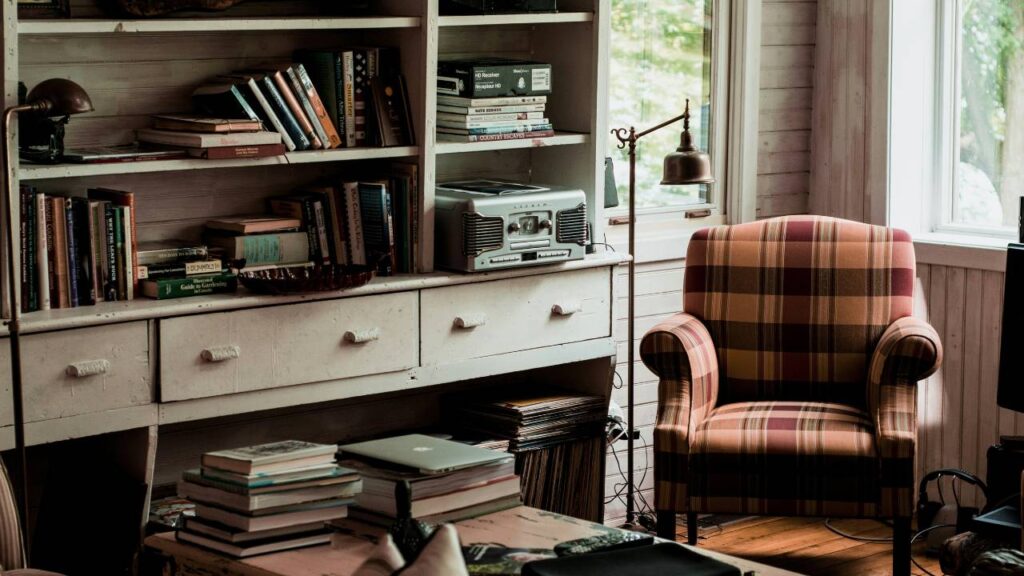
Expanding your cosy Irish cottage can be an exciting venture, one that breathes new life into your cherished space. When you consider extending your cottage, it’s all about creating harmony between the old-world charm and modern functional extensions. In Ireland, where the landscape is dotted with quaint and historical cottages, an extension isn’t merely an added space; it’s a blend of tradition with the comfort of contemporary living.
The beauty of extending your cottage lies in the multitude of options available to you. Whether you’re looking to add a sun-drenched conservatory for those cool afternoons, a loft conversion to take advantage of unused attic space, or a seamless kitchen expansion that caters to family gatherings, there’s a solution that can cater to your needs. The key is to merge the extension seamlessly with the existing structure, ensuring that the new addition complements the cottage’s inherent character.
Planning Your Cottage Extension
When extending your Irish cottage, it’s essential to consider not just the aesthetic and functional aspects but also the regulatory and energy efficiency standards.
Understanding Local Regulations
Your extension project must adhere to local regulations to ensure it’s legal and compliant. You’ll need planning permission from your local authority for most – but not all – developments of this type, especially if you’re making significant changes. Begin by checking:
- Local Development Plans (LDP): Find out what types of development are allowed.
- Exempted Development Criteria: Small changes might not need permission.
Notifying your neighbours about your plans is also a courteous step, which may be a requirement depending on the extent of your project.
Choosing the Right Architect
Selecting an architect who is familiar with Irish cottages and local architectural vernacular is vital. They can blend traditional aesthetics with modern functionality. Here’s what to consider:
- Experience: Look for an architect with a portfolio of cottage extensions.
- Local Knowledge: An architect familiar with local planning processes can be a bonus.
Ask for references or testimonials from previous clients to gauge satisfaction and success.
Creating an Energy-Efficient Design
In Ireland, the focus on energy-efficient designs is growing. Aim for a design that reduces your carbon footprint while ensuring comfort. Look to include:
- Insulation: High-quality materials to retain heat.
- Renewable Energy Sources: Such as solar panels or heat pumps, subject to planning constraints.
An energy-efficient design might qualify for grants or incentives, so explore your options with your architect and local authority.
Designing for Comfort and Style

When you’re planning your cottage extension in Ireland, prioritise designs that enhance both comfort and style. Carefully selected layouts and features can transform your space, making it a personalised retreat.
Incorporating Natural Light
Maximising natural light in your extension can make rooms feel more spacious and welcoming. Consider installing skylights or large windows to brighten up your space. Position these features strategically to capture the best light throughout the day. For instance, south-facing windows allow for ample sunlight, which can naturally warm the room and reduce the need for artificial lighting.
Selecting Layouts for More Space
Choosing the right layout is crucial for a sense of spaciousness. Open-plan designs can create free-flowing areas and flexibility within your home. When planning your layout, think about:
- Zoning Spaces: Use furniture or varied floor materials to subtly divide different areas without closing them off.
- Storage Solutions: Built-in storage keeps clutter at bay and maintains a sleek look.
Adding Character with Unique Features
Inject character into your cottage extension by incorporating unique features. Exposed wooden beams or a statement fireplace can serve as focal points that reflect your personality and aesthetic preferences. Here are a few ideas:
- Feature Walls: A bold colour or pattern can add depth to a room.
- Vintage Touches: Salvaged or antique items can give a nod to the past while contributing to a stylish modern setup.
These elements bring an individualised flair that makes your cottage extension truly yours.
Extension Types and Ideas
When considering extending your cottage in Ireland, the key is to enhance your living space while complementing the existing structure. Let’s explore some tailored ideas for your home.
Modern Kitchen Expansions
Your kitchen can be transformed into a spacious, multi-functional hub by extending it outwards. Consider incorporating island counters for additional worktop space and built-in appliances for a sleek look. Use natural light to your advantage with skylights or large glass doors that lead to the garden, making the kitchen feel larger and more welcoming. Some design tips include:
- Use open shelving to keep the space airy.
- Choose integrated appliances for a modern touch.
Adding Extra Bedrooms
If your family is growing, or you’re in need of a home office, adding extra bedrooms is a wise choice. Optimise the design to make use of any available space such as attic conversions or two-story extensions. Ensure each bedroom provides comfort and privacy, perhaps with en-suite facilities to add value to your home. Some considerations include:
- Aim for a seamless transition from the existing structure to the new addition.
- Contemplate built-in wardrobes to save space.
Integrating a Sunroom or Conservatory
A sunroom or conservatory is a delightful way to invite the outdoors in and boost the value of your cottage. You’ll gain a serene spot to relax or entertain with a panoramic view of your garden. For a sunroom, prioritise insulation and heating options to make it a year-round living space, while a conservatory should be designed to harmonise with the outdoor surroundings. Essential elements include:
- Ensure adequate ventilation and shading for comfort.
- Choose materials that complement your cottage’s exterior.
Budgeting and Cost Management

In planning your cottage extension in Ireland, knowing how much such a project would cost is crucial to ensuring it aligns with your financial expectations.
Estimating Costs Early
It’s important to get a clear estimate of your project costs right at the beginning. Begin by listing all known expenses:
- Materials: Quantify and price the materials you’ll need.
- Labour: Investigate prevailing wage rates.
- Permits and fees: Check local regulations for associated costs.
Factor in the size and complexity of your house extension ideas, as these will significantly affect your total expenditure.
Working with Surveyors and Contractors
Selecting the right professionals is key to keeping your costs aligned with your budget. Ensure accurate measurements and compliance with regulations by looking for licensed and experienced surveyors. Surveyors’ fees vary, so get multiple quotes.
Your contractors’ expertise will directly influence the quality and cost-efficiency of your build. Investigate their past projects and client feedback when checking their reputation. Request detailed quotes from contractors to compare pricing and scope of work.
Allocating Funds for Contingencies
Unexpected costs are a reality of construction projects.
- Contingency budget: Aim to set aside an additional 10-20% of the total estimated cost to cover unforeseen expenses.
By careful planning and setting realistic budget limits, you’ll be better prepared to handle any surprises and keep your cottage extension project on track.
Maximising Property Value

When extending your cottage in Ireland, your goal is often to increase your property’s market worth. Carefully chosen extensions can add significant value by enhancing living space, incorporating eco-friendly materials, and improving landscaping.
Considering the Impact of Additional Living Space
Adding extra space to your cottage is a surefire way to increase its value. A well-designed extension can transform your property by providing additional living areas that meet modern lifestyle demands. Consider the following:
- Purpose: Identify whether you need a home office, playroom, or an extra bedroom, and plan the extension accordingly.
- Integration: The new space should seamlessly blend with your existing layout to maintain a cohesive look and feel.
Choosing Eco-Friendly Materials
Using eco-friendly materials is not only good for the environment but can also be a selling point for future buyers. Key considerations include:
- Sustainability: Opt for renewable or recycled materials that have a lower impact on the environment.
- Insulation: High-quality insulation reduces energy costs, a feature that’s attractive to buyers.
Landscaping and External Aesthetics
The exterior of your cottage is the first impression it makes. Thoughtful landscaping and aesthetics can significantly enhance value. Pay attention to:
- Garden Layout: A well-planned garden that complements your extension can create an attractive outdoor living space.
- Curb Appeal: Invest in the façade and entrance to make your property welcoming and desirable.